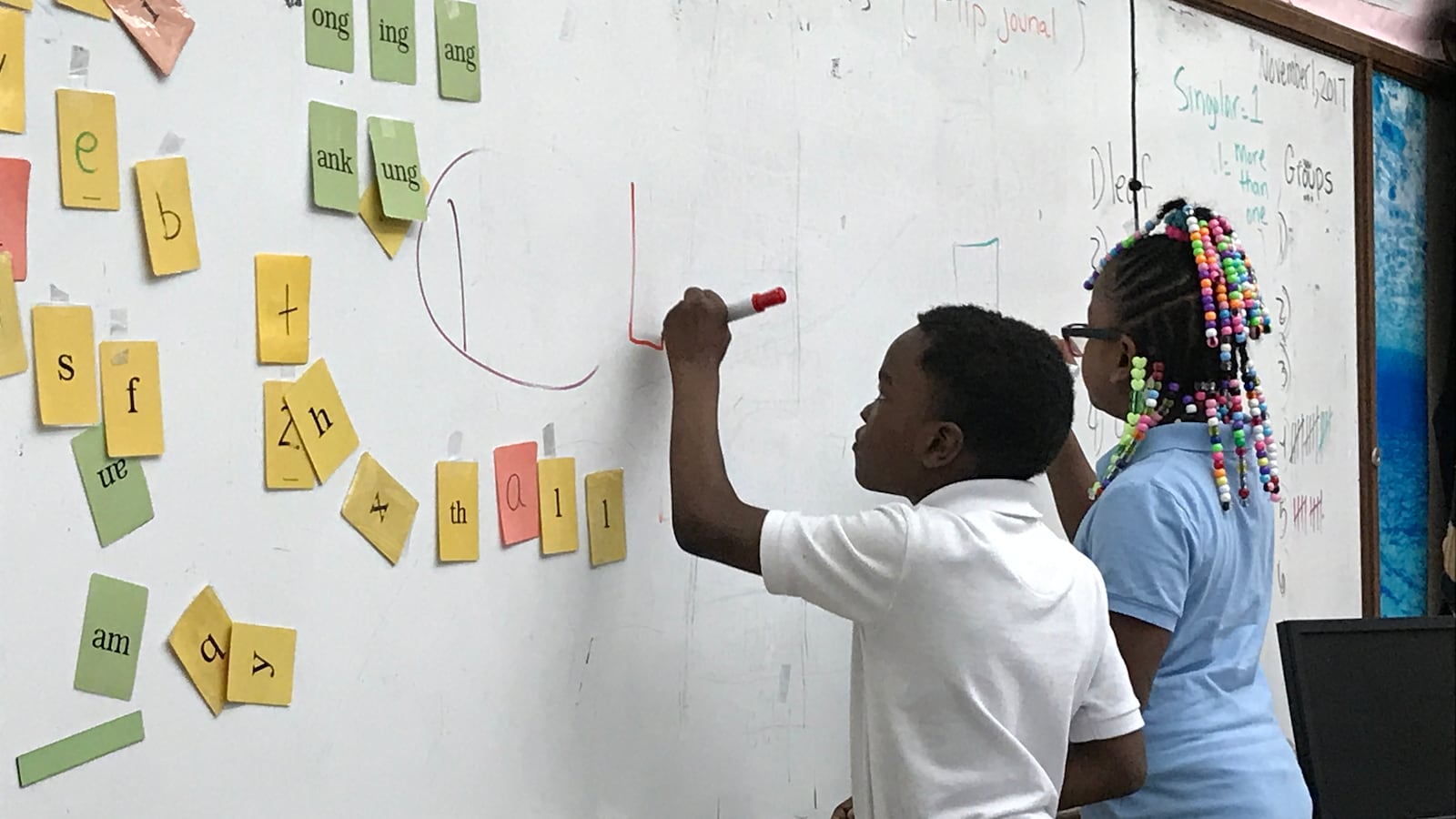Tensions might be high between Detroit district and charter schools these days, but a powerful coalition of city leaders says the warring factions need to start working together to solve Detroit’s educational crisis.
The Coalition for the Future of Detroit Schoolchildren, which includes prominent leaders from government, schools, non-profits, businesses, unions and philanthropy, today issued a list of recommendations for ways to improve Detroit schools.
Among them are things like a centralized attendance system that would track children’s absences, regardless of whether they attend a district or a charter school.
Other recommendations include a city-wide #DetroitProud marketing campaign designed to lure families back to the city from suburban schools to attend either district or charter schools, as well as a “Teach Detroit” tool to help all schools recruit educators. Currently district and charter schools compete aggressively for both students and teachers and rarely, if ever, work together.
Detroit Schools Superintendent Nikolai Vitti, who has taken a combative stance against charters since his arrival in Detroit last spring, has expressed skepticism in the past about whether the district would benefit from collaborations with charters but his cooperation would likely be key to implementing these measures.
Vitti served as a member of the coalition’s steering committee, as did several charter school leaders. He attended the coalition’s press conference on Wednesday and said he is “fully supporting what is embedded in these initiatives” because they align with the district’s goals of improving student achievement and conditions for kids.
But how the district and charter schools will ultimately cooperate with each other — and what that could look like — isn’t yet clear.
“How we begin to execute those recommendations and how we approach citywide strategies [is something] we still need to negotiate,” said Tonya Allen, a coalition co-chair who heads the Skillman Foundation (a Chalkbeat supporter). “We’ll figure out some places where there are tension points and we expect that … but we believe as a community that if we don’t do it, then we are creating a sentence for our children and it’s not one of prosperity.”
The coalition isn’t calling for mandatory cooperation this time around.
The first time the group issued recommendations for Detroit schools back in 2015, a key proposal was a “Detroit Education Commission” that would have had authority over district and charter schools and could have overseen efforts such as common enrollment and transportation systems.
That proposal was eventually defeated in Lansing after it ran into strong opposition from charter school backers — including now-U.S. Education Secretary Betsy DeVos — who feared the commission would favor district over charter schools.
This time around, the so-called “Coalition 2.0” effort is calling for a voluntary “education ecosystem” that would be facilitated by the mayor’s office. It would set quality standards for all schools and would work with school leaders to “voluntarily create a charter-district compact that reviews, discusses, and presents plans for better coordination and transparency about school openings and school closings … and opportunities for citywide collaboration in areas such as a centralized data system.”
The Coalition 2.0 report stressed that this mayoral commission “would not usurp the authority” of the district or charter school boards.
Another major difference between Coalition 2.0 and its predecessor is that this year’s effort is more focused on things that don’t require support from lawmakers in Lansing.
One exception is a call to change the way the state funds special education so that the state would cover the cost of services that schools are required to provide. Recommendations also include a school funding formula that would send more money to schools whose students have greater needs.
Read the full report here:

